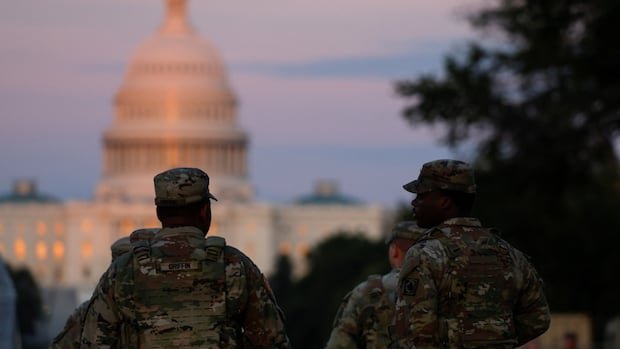After deploying numerous National Guard troops to Los Angeles in June and later to Washington, D.C. in August, questions have arisen regarding the extent to which President Trump will continue these actions and the legality of his authority to do so. Trump has defended these deployments by citing high levels of violent crime in these cities and accusing local officials of negligence. In response, mayors and governors have condemned Trump’s actions as unwarranted and unlawful.
Trump recently declared Washington as “safe” following the National Guard deployment, presenting it as a potential model for similar actions in other cities. However, a key distinction lies in the fact that Washington, D.C. operates as a district rather than a state, granting the president more control over the National Guard there compared to state-controlled National Guard units.
Presently, over 2,200 troops are stationed in Washington, with more than half from states led by Republican governors who agreed to provide assistance by sending their own National Guard members. The deployment has been extended until the end of November, with potential further extensions until year-end.
D.C. Attorney General Brian Schwalb has initiated legal action against the deployment, alleging that the use of troops for law enforcement purposes is illegal and constitutes a military occupation without proper training or accountability to the local population.
Outside of Washington, the situation is more complex for Trump. State-controlled National Guard units typically require the governor’s request or specific conditions for federalization by the president. Disagreements arose in June when Trump federalized California National Guard troops to support immigration agents in Los Angeles, a move deemed illegal by a federal court under the Posse Comitatus Act.
Despite legal challenges, the Trump administration plans to appeal the ruling and remains steadfast in its intentions to potentially deploy National Guard troops in cities like Baltimore, Boston, New Orleans, and notably, Chicago. Trump’s recent rhetoric labeling Chicago as the “murder capital” and expressing concerns over rising crime rates has sparked controversy and opposition from local officials like Mayor Brandon Johnson, who argue that crime rates have actually decreased significantly in recent months.
The escalating tensions between Trump and various city leaders, particularly regarding the potential deployment of National Guard troops, continue to raise constitutional and legal debates about the extent of federal authority in handling domestic issues.
